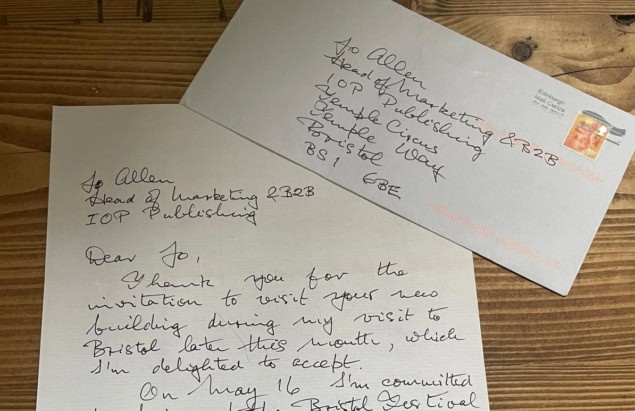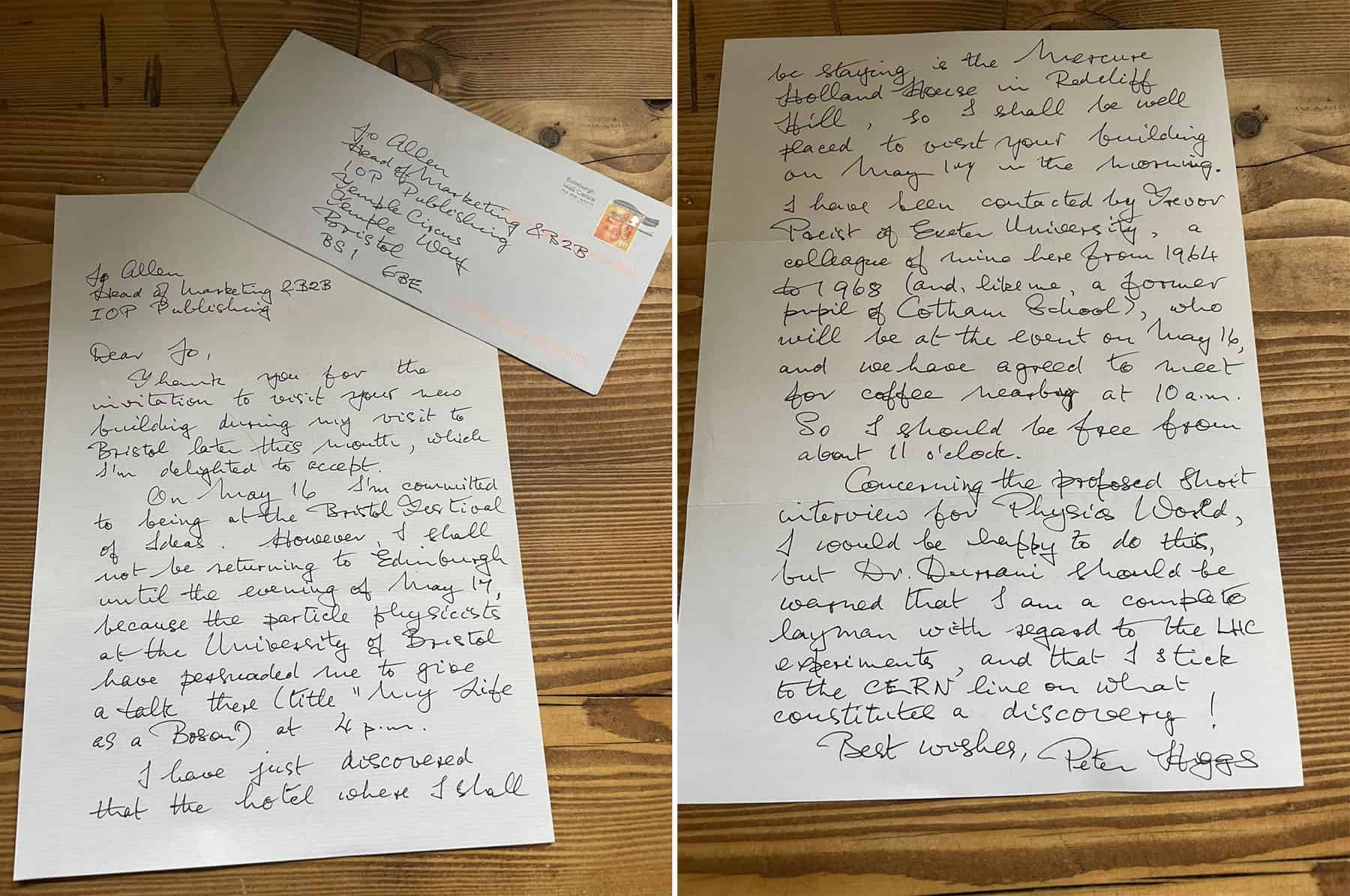
I can’t really claim to have known the Nobel-prize-winning physicist Peter Higgs, but after the sad news emerged last week that he had died on 8 April at the age of 94, I was immediately reminded of my one brush with him.
An obituary in the Times described Higgs as “warm, funny and engaging” – and that was exactly the person I encountered when we met at the offices of IOP Publishing in Bristol, UK, in May 2012.
Higgs, then 82, had come to Bristol to speak at the city’s Festival of Ideas and to open the “Dirac–Higgs Science Centre” at Cotham School, where he spent five years as a child while his father was stationed in the city as an engineer for the BBC during the Second World War.
As the centre’s name suggests, Higgs wasn’t the only Nobel laureate to have studied at the school. In its earlier guise as the Merchant Venturers’ Technical College, it had also been attended by Paul Dirac, whose name the young Higgs used to see on Cotham’s honours boards.
“Concerning the propopsed interview with Physics World, I would be happy to do this, but Dr Durrani should be warned that I am a complete layman with regard to the LHC experiments.”
Peter Higgs
Jo Allen, currently head of media at IOP Publishing, which publishes Physics World, had got wind of his impending visit and decided to ask Higgs if he wanted to visit our offices and be interviewed by Physics World.
Rumours were circulating at the time that physicists at the Large Hadron Collider (LHC) at CERN were about to announce the discovery of the boson that Higgs had predicted almost five decades earlier – and we knew that an interview with Higgs would be eagerly lapped up.
Higgs, who had long since retired, famously avoided e-mails and rarely – if ever – used his phone. So more in hope than expectation, Allen – who was then head of marketing at IOP Publishing – posted a letter to him at his flat in Edinburgh. A few weeks later, she was thrilled to receive a two-page hand-written letter from him in return. Dated 1 May 2012, it said he was “delighted to accept” our invitation.
“On May 16, I’m committed to being at the Bristol Festival of Ideas,” Higgs wrote. “However, I shall not be returning to Edinburgh until the evening of May 17, because the particle physicists at the University of Bristol have persuaded me to give a talk there (title “My Life as a Boson”) at 4 p.m.”
Higgs added that he was planning to have a coffee at 10 a.m. on 17 May with an old colleague Trevor Priest from Exeter University, who had also been a pupil at Cotham. “So I should be free from about 11 o’clock,” Higgs concluded.
While saying he was “happy” to do an interview with Physics World, he insisted with trademark modesty that “Dr Durrani should be warned that I am a complete layman with regard to the LHC experiments”. Higgs said he would therefore “stick to the CERN line on what constitutes a discovery!”

In the interview, which you can listen to here, Higgs proved to be charming, open and friendly. He talked about how the Higgs boson came to be so named, what his research interests were, why he eschewed religion – and what he thought the best analogy anyone had ever made for the Higgs boson.
Keen to insist that others should get the credit for their theoretical contributions, he was constantly at pains to refer to the “so-called” Higgs boson. Not one to stand on ceremony, he even remained unfazed when IOP Publishing’s tea lady accidentally barged into the room with her trolley, unaware an interview was going on.

Peter Higgs: Nobel-prize-winning particle theorist dies aged 94
After the interview, we took some photographs with Higgs. He then accepted an offer from Allen to drive him up to Cotham School – on the proviso that no physics was to be discussed during the short journey through Bristol.
Less than two months later, CERN announced that the Higgs boson had been discovered. The following year, Higgs was awarded the Nobel Prize for Physics, jointly with François Englert.
I never saw Higgs again. Only now, following his death, do I realize how lucky I am to have met him, however brief that encounter was. And what a lovely hand-written letter to have as a reminder.



